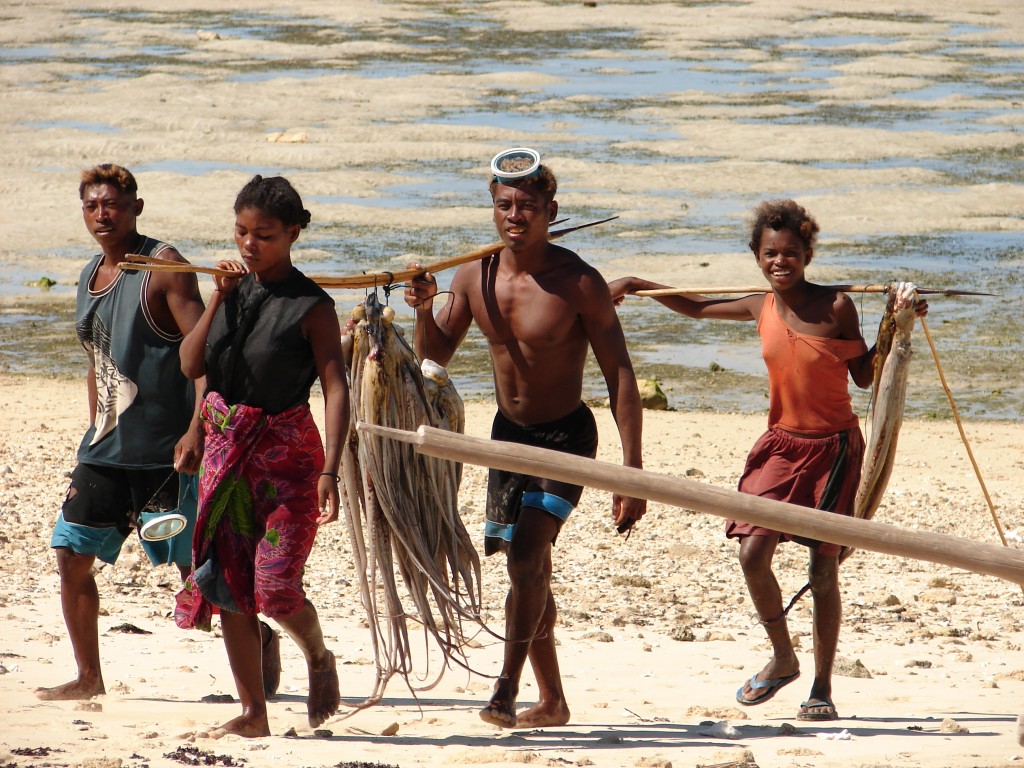by Kame Westerman, Velondriake MPA Project Coordinator, Madagascar
Octopus is the most commercially valuable species within the Velondriake LMMA (locally managed marine area), bringing in a substantial portion of household income. Traditionally, women harvest octopus most frequently, venturing out on shallow reef flats during spring tide with spears. Men, however, do sometimes participate in the fishery, generally free diving from a canoe with mask and spear. Temporary octopus closures, where reef flats are closed to harvest for 2-3 months, has been a cornerstone of Velondriake resource management since 2004, providing increased income to fishers upon opening. However, although women are the biggest octopus harvesters, resource decisions – such as octopus closures – are primarily done by men. We believe that long-term sustainability of the closures must include women in decision-making and enforcement.
To this end, Blue Ventures launched a series of workshops in 10 villages within Velondriake that frequently implement octopus closures. The workshops focused on creating dialogue and discussion about the role that women currently play in management decisions, and came up with potential methods for further increasing participation in the future. The workshops were divided by gender, with women in the morning session and men in the afternoon session so that both could speak freely. By and large, women said they would like to be more involved in decision-making, but find the local culture of male domination to be a barrier. One possible solution many groups described is for women in a village to meet separately and then for one representative to relay information in the village meetings.
Women’s empowerment in natural resource management is an on-going issue for conservation initiatives around the world. While we cannot necessarily change deep-seeded cultural attitudes during a half-day workshop, the discussions are thought provoking and may lead to further action.



